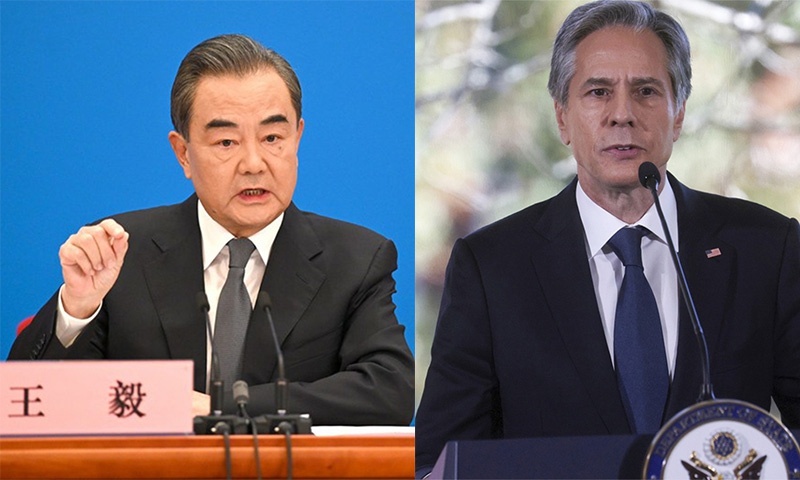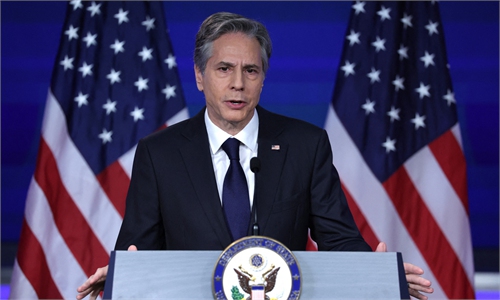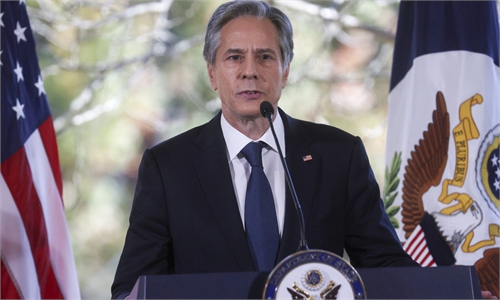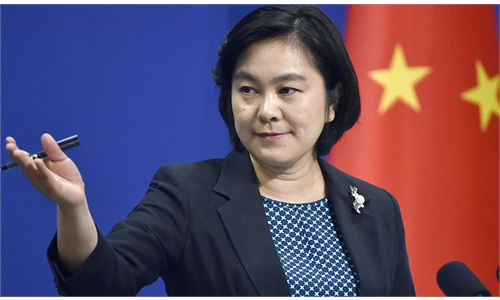US has serious misconceptions in its views on world, China and China-US ties: Wang Yi on Blinken’s ‘China policy’ speech

Chinese State Councilor and Foreign Minister Wang Yi (left) and US Secretary of State Blinken.
In response to US Secretary of State Antony Blinken's speech on US' China policy, which called Beijing the "most serious long-term challenge" to the international order, Chinese State Councilor and Foreign Minister Wang Yi who is still in a trip to Pacific island countries said Saturday that the US has serious misconceptions in its views about the world, China and China-US relations and stressed that China will never yield to blackmail or coercion.
The world is not what the US depicts and the most pressing task facing the international community is to jointly protect human life and health, promote world economic recovery and safeguard world peace and tranquility, which calls for the establishment of a community with a shared future and for the implementation of purposes and principles enshrined in the UN Charter, Wang said.
Wang noted that the China-proposed Belt and Road Initiative, Global Development Initiative and Global Security Initiative have won widespread recognition and support from the international community, and the US obsession with "Western-centrism," "exceptionalism" and the Cold War mentality, as well as its push for the logic of hegemony and bloc politics, go against the trend of history, which will only lead to confrontation and split the world community.
The US has in fact become a source of turbulence that undermines the current world order and the stumbling block hindering the democratization of international relations, Wang stressed.
"We want to tell the US that China is not what the US has imagined," Wang said. He noted that there is a clear historical logic to China's development and revitalization that has a strong endogenous power.
The common pursuit of modernization by 1.4 billion Chinese people represents a great progress for mankind, rather than a threat or challenge to the world, Wang noted, adding that such an achievement is made under the strong leadership of the Communist Party of China, and a result of the solidarity, diligence and hard work of the Chinese people who find the path of socialism with Chinese characteristics.
China's goal is open, fair and square. The goal is to make life better for Chinese people and to make a greater contribution to the world, not to replace or challenge any other countries, Wang said.
What we want to tell the US is that China-US ties are not a zero-sum game designed by the US, Wang said. As Chinese President Xi Jinping pointed out, whether the two countries can handle their relationship well bears on the future of the world and it is a question of the century to which the two countries must provide a good answer.
Before answering the question, the US should be aware that a unipolar hegemony will find no support, group confrontation has no future, building small yards with high fences means self-isolation and backwardness, and decoupling and cutting supplies only hurt others and itself as well, Wang said.
Countries can stage fair competition with each other, and it is natural that China and the US have competition, but it should not be a destructive one, Wang said. The Chinese people have the confidence and are ready to conduct a fair competition to see who can better govern their own country and who can make more contributions to the world, Wang added.
"China will never yield to blackmail or coercion, and will firmly defend its sovereignty, security and development interests," he said, stressing that the Chinese people have the backbone and resolve to do it, and any suppression and containment will only make them more united.
China-US ties are at a crossroads and the US should make the right choice, putting more efforts on principles of mutual respect, peaceful coexistence and win-win cooperation, rather than defining China-US relations as having competitive, cooperative and adversarial aspects, or focusing on the strategy to invest, align and compete, so as to find the way for the two major countries to properly deal with each other in the new era, Wang said.
Wang is on an eight-nation tour to the Pacific region and Saturday will take him to Fiji, the fourth leg of his tour to the Pacific island countries.



